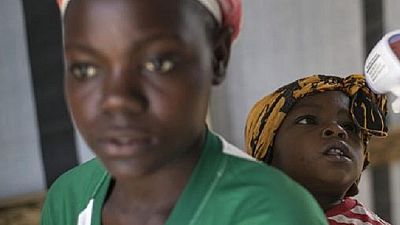Africa
On the occasion of the Day of the African Child – which fell on Friday June 16, 2017; international rights group Human Rights Watch (HRW) called for an end to exclusion from school for married and pregnant girls across the continent.
In a press release titled ‘Africa: Make Girls’ Access to Education a Reality,’ HRW noted that over 49 million girls were out of school – primary and secondary – in sub-Saharan Africa alone, a situation which undermines their rights and limits their opportunities.
They identified teenage pregnancy and early marriage as the main factors for this school drop out rate. The group said it was saddened that even though most countries in the sub-region had made commitments to advance primary and secondary level education, ‘‘many exclude or expel pregnant and young mothers from school.’‘
“The African continent has one of the world’s highest rates of adolescent pregnancy, but many governments insist on tackling this social and public health challenge by punishing girls and jeopardizing their future,” said Elin Martínez, children’s rights researcher at Human Rights Watch.
“Governments should focus on helping girls prevent unintended pregnancies and support their efforts to stay in school,” the researcher stressed.
Some key facts HRW shared were as follows:
- In sub-Saharan Africa, 40 percent of girls marry before age 18
- African countries account for 15 of the 20 countries with the highest rates of child marriage globally.
- The region also has the world’s highest prevalence of adolescent pregnancies.
- In 14 sub-Saharan countries, between 30 and 51 percent of girls give birth before they are 18.
*Cultural or religious beliefs often stigmatize unmarried, pregnant girls, with the result that many pregnant girls are forced into early marriages. According to the United Nations, 80 percent of women ages 15 to 24 who have HIV globally live in sub-Saharan Africa and across the continent, and girls aged 15 to 19 are five times more likely to be infected with HIV than boys.














02:03
Muhammadu Buhari's legacy: higlight of his presidential tenure
01:01
Kenya: Visa-free travel now available for many African and Caribbean countries
01:55
Burkina Faso's only eye doctor for children sees trauma of both play and conflict
01:12
One child displaced every five seconds in MENA region conflicts
Go to video
Paraguayan town celebrates vibrant Kamba Ra'anga festival with masks, fire and tradition
01:05
Study finds millions of children at risk as global vaccine rates fall